A mother, a teacher and a student: three stories of hope from times of uncertainty
How AKF is working with communities in response to COVID-19 to support Early Childhood Development and Education in East Africa
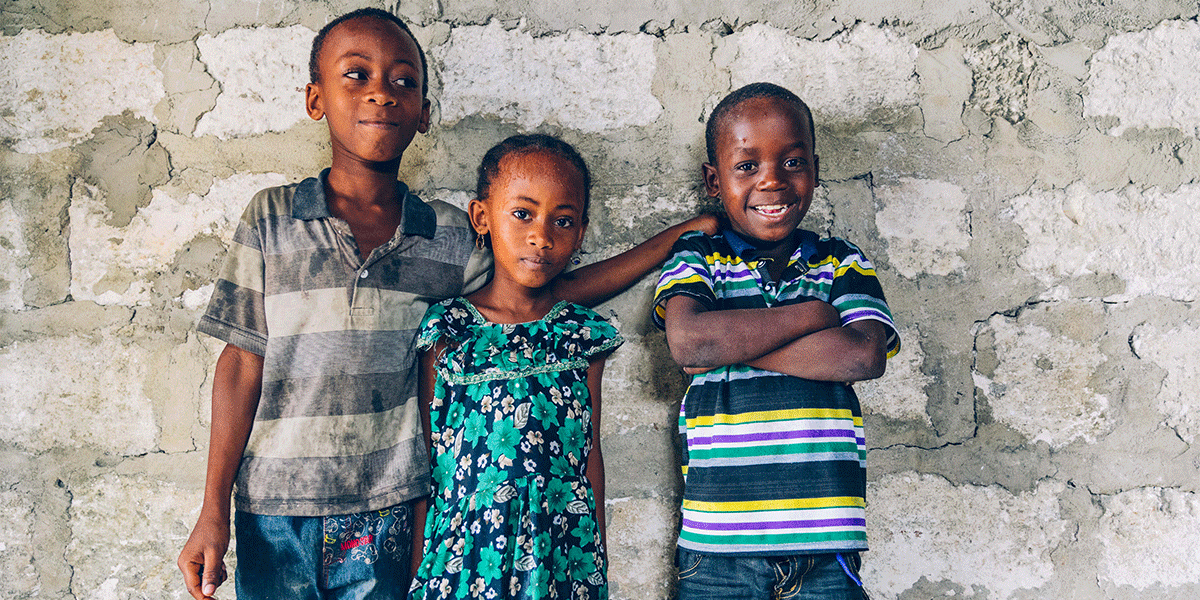
When worldwide school closures threatened the education and development of East Africa’s young children, the Madrasa Early Childhood Programme (MECP – an affiliate of the Aga Khan Foundation in East Africa) worked with communities in Kenya and Tanzania to react to this threat. Through cooperation with teachers, families and civil society organisations, the work aimed to ensure that a generation of young people were not unfairly impacted by the crisis.
AKF’s multi-pronged approach includes supporting students and young children, supporting parents and families, and supporting teachers and schools. Read on to hear stories from those at the heart of this work.
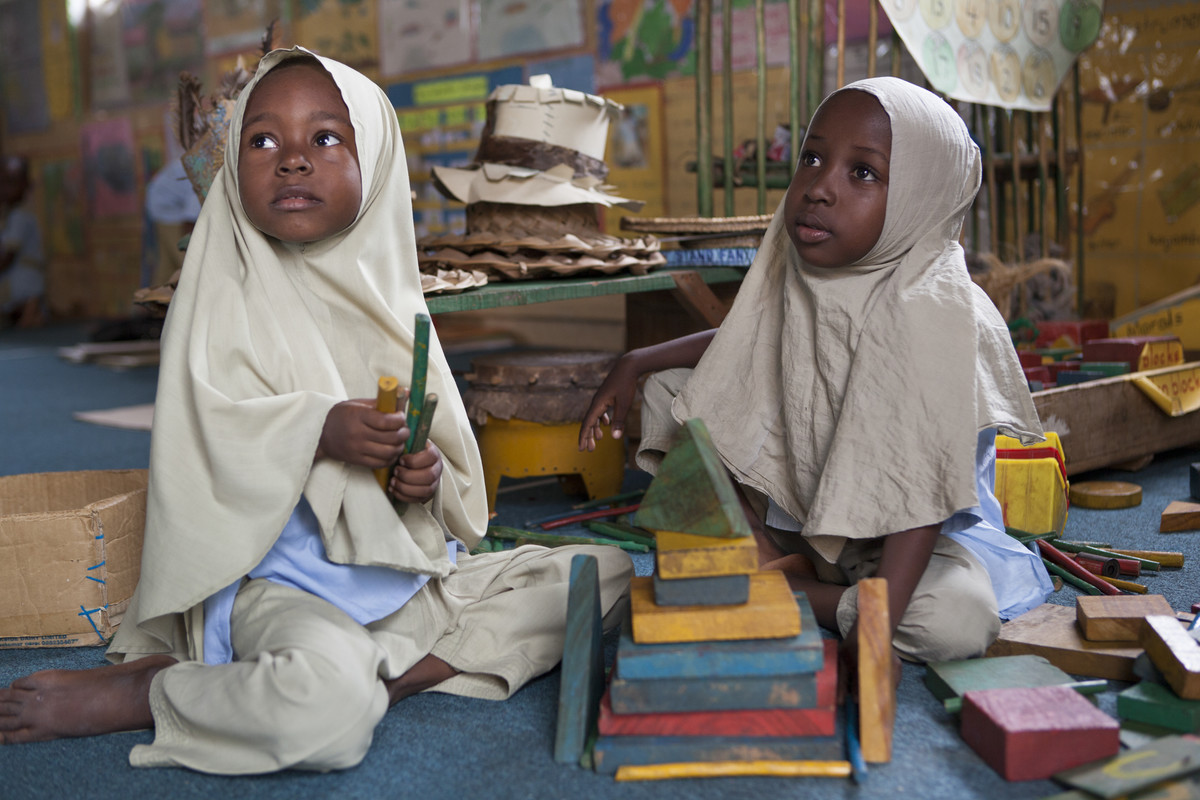
The mother – Risper’s story
Risper Okwemba lives in Jomvu, a coastal town about 20 minutes from Mombasa, Kenya, with her husband and six school-aged children. Her youngest two children attended an MECP supported community-based preprimary school until March 2020, when the government required that all schools close due to the pandemic.
Like many parents, Risper struggled to adjust to life amidst the school closures and the many other challenges of the pandemic. Prior to COVID-19, Risper and her family would wake up early, get ready and go to school. After school, her children would go to the madrasa to study. With them occupied all day and her husband at work, Risper would take care of her many responsibilities and in the evenings the household would eat together. The routine helped the family feel more secure because their daily activities were predictable and familiar.
Of course, as with so many around the world, the pandemic disrupted this routine drastically. With everyone confined to the house, Risper struggled to support her children’s learning and keep up with her chores, not to mention managing her own fears about keeping the family safe and happy.
Luckily, she became involved with the Rise and Shine initiative, a programme conducted by MECP-K in collaboration with the Mombasa County Government. Supported by the Aga Khan Foundation, the Government of Canada, Comic Relief and LEGO Foundation, the aim of Rise and Shine was to increase the knowledge and skills of parents to support their children’s schooling and wellbeing in these new and challenging circumstances.
Risper received one-to-one support from Miss Fatima, a teacher from the programme, through frequent messages over WhatsApp and phone calls. There were many rumours and misinformation in Risper’s community about COVID-19 – how it spread and how to treat it – and Miss Fatima served as a trusted source of information on the virus and best practices to keep her and her family safe.
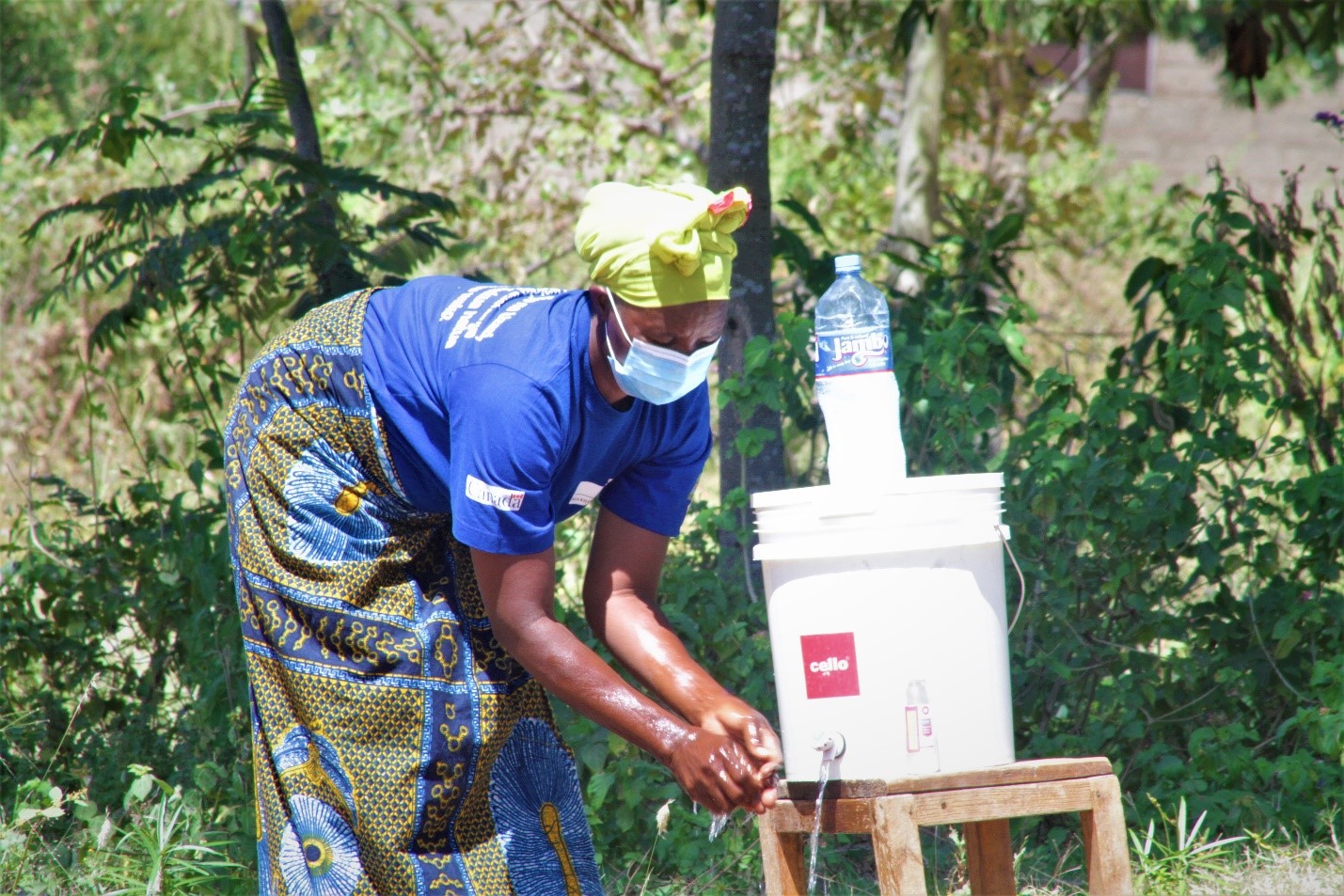
Miss Fatima also helped Risper with ideas for supporting her children, and sent her resources with ideas for educational activities that the family could do together. They discussed ways she could help her children establish a new daily routine, age-appropriate ways they could contribute to household chores, and how storytelling could help them develop early literacy and language skills (particularly important for her youngest child). Establishing this new routine with her children made a huge difference to Risper and her family – “we were able to make sure the time we spent together was actually meaningful.”
In the past, she had often found the children to be more of a hindrance than a help when it came to doing the household chores. After some initial teething problems, she was surprised to find that they adapted really well to their new circumstances. At the beginning of lockdown the children “were exhibiting behaviour that was worrying, they would not follow any directions or rules.” Risper struggled the most with her four-year-old son, who refused to pay her heed as he “wanted to be independent.”
It was through her conversations with Miss Fatima and the Rise and Shine initiative that Risper first realised that the younger children could actually help with some of the chores – she had just never thought to ask them before! She soon found that her four-year-old actually enjoyed assisting her with washing the clothes. He not only began to help more readily, he also grew to understand better when it was time to play, when it was time to help, and when it was time to give mom and dad some space.
Reflecting on the experience, Risper shared this: “I am so grateful for what I have learnt. I don’t know how to pay it back, but I promise to pass this information on to other members of my community so that we can all stay safe, healthy and happy.”
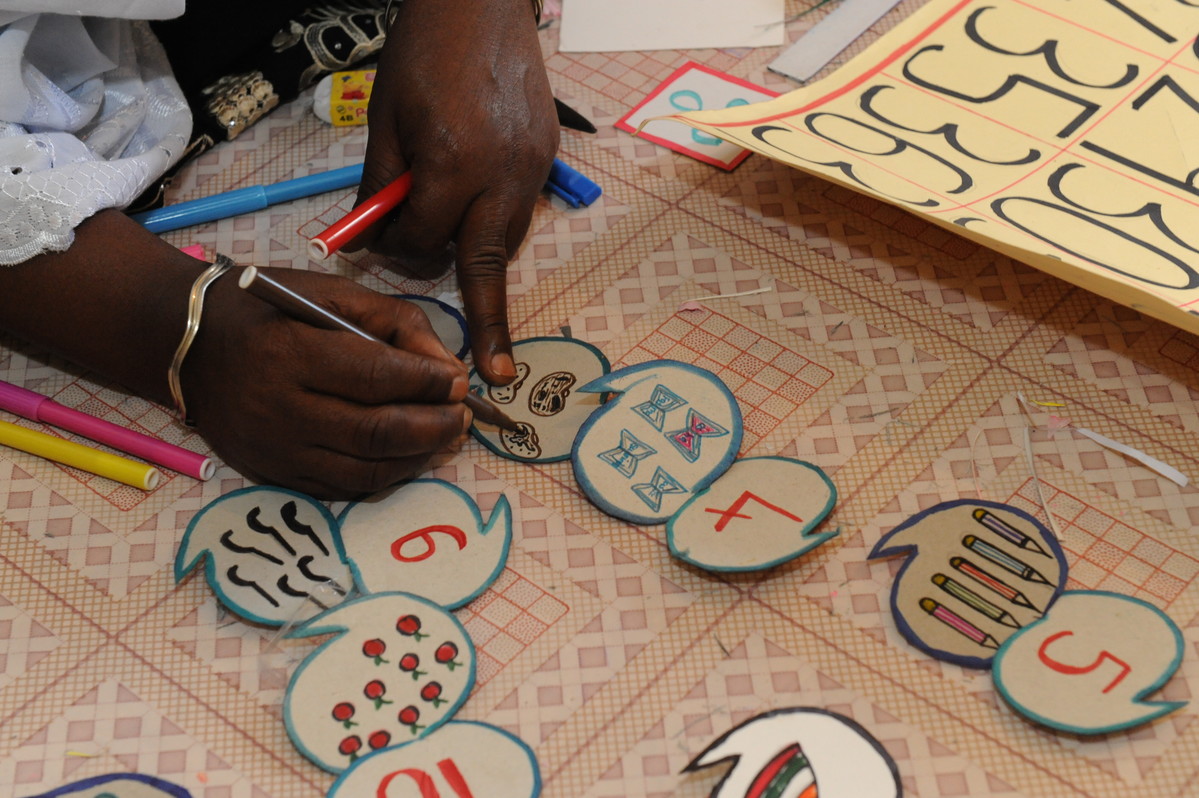
The teacher – Khadija’s Story
Teacher Khadija lives in Pangawe, a small rural community about 170km inland from Tanzania’s coastal capital. After the government deemed it safe to reopen schools in early 2021, 57 children returned to in-person learning at Tawafik preschool – the school where Teacher Khadija has worked for the last two decades.
Working primarily in the nursery class, most of Khadija’s pupils are very small children in their first year of learning. Khadija was one of 386 preschool teachers, from 113 schools, who benefitted from the “Make a Toy Workshop” teacher training that MECP-Z hosted with support from the LEGO Foundation. The workshop helped her to gain “new knowledge and creativity in making toys to support children, both at school and in the home”.
One of her favourite parts of the training, she recalls, was the segment that required teachers to share their experiences with play during their own childhood. She said that reflecting on her own experiences as a young child, and hearing stories told by her colleagues, helped her think more creatively about what toys and materials her own students might enjoy playing with.
“I get new knowledge and creativity in making toys to support children at schools and home. I have been able to improve rapport with parents and caregivers who now can make materials and support their children’s learning by playing at home”
Teacher Khadija
The workshop’s focus on play-based learning also helped her to understand that toys were much more than just a way to keep children occupied. They actively support a young child’s early learning and development – through the simple act of play, a very small child can learn myriad skills such as intuition, confidence-building, creativity and more.
The training also helped her improve her rapport with parents and caregivers in the community, with so many wanting to take a more active role in their child’s at-home learning, even now that schools and ECD centres have opened. Khadija explained that the range of ideas, the use of low-cost materials and the greater understanding of the importance of play on a child’s development had inspired this more active involvement from parents.
Today Khadija is back at school, with the collection of homemade cars, dolls, and houses that she created, along with ones that her students brought with them from home. She feels so happy to be back in the classroom so that she can support children in-person again.
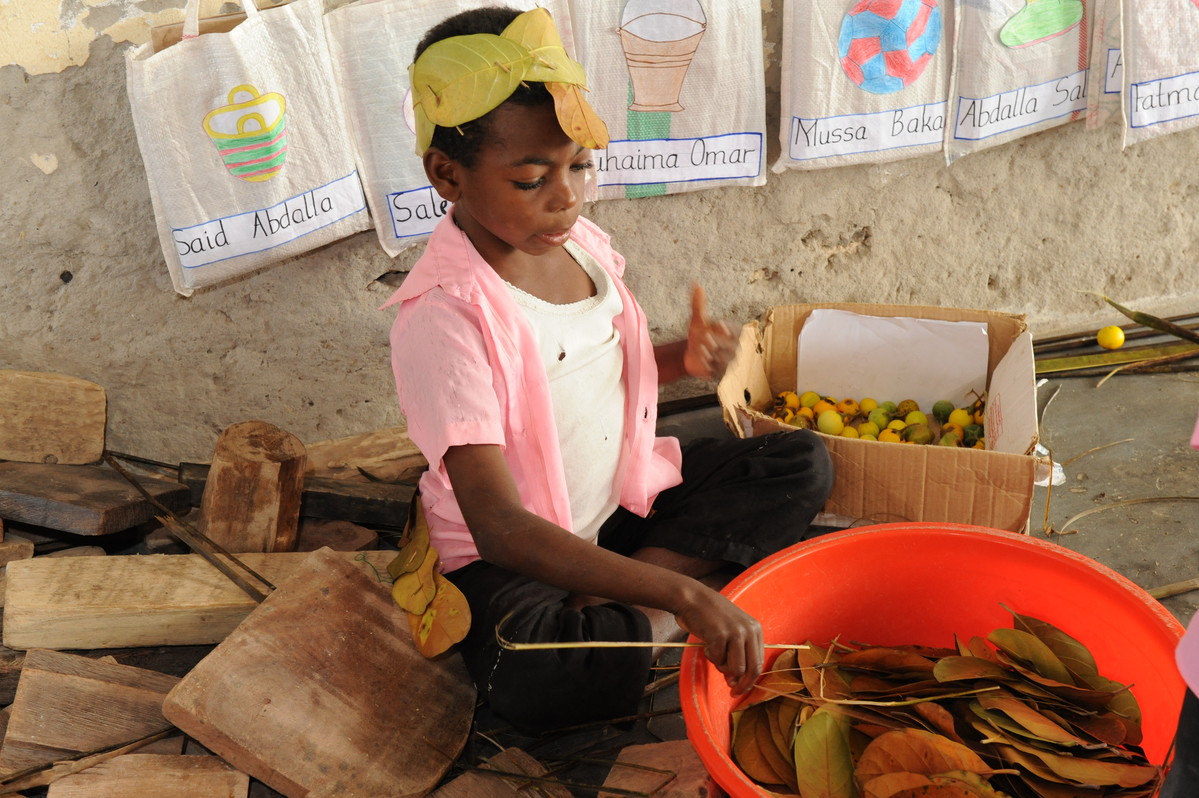
Mussa’s story
Ali Mussa Bakar is a student in Haileselasi Secondary School in Zanzibar. Like most other students around the world, Mussa was forced to study from home once the worldwide lockdown began in early 2020.
At the time, Mussa was in his second year of secondary school (known as Form Two in Tanzania) and was in the midst of preparing for the upcoming Form Two National Assessment – a series of exams that evaluate a student’s competencies in seven core subjects. In 2020, 731 of the 646,000 students registered for these exams had at least one type of special need, such as visual impairment, blindness, a hearing impairment or another type of disability.
Mussa’s visual impairment makes school much more difficult for him compared to other children his age. Before the pandemic, he learned by carefully listening to his teacher’s lectures. Readings in braille were supposed to be made available to him, but unfortunately it was rare that they were. Thus when schools were forced to close due to the pandemic, it was imperative that educators found a way to ensure students like Mussa would not be excluded.
Mussa was overjoyed when one of his teachers visited his home and hand-delivered a stack of braille notes in each subject.
In collaboration with the Inclusive Education Unit, the Ministry of Education and Vocational Training, and the Norwegian Association of the Disabled, the Madrasa Early Childhood Programme in Zanzibar (MECP-Z) provided braille notes in all subjects for primary and secondary students with visual impairment like Mussa. The braille notes were distributed to teachers, who then hand delivered them to their students.
Mussa was overjoyed when one of his teachers visited his home and hand-delivered a stack of braille notes in each subject. With this newfound enthusiasm, Mussa studied vigorously, and passed his exams in November 2020. He is now in Form 3 and already preparing for his next set of exams, in hope that he will continue his schooling through to advanced secondary school level.
AKF’s Early Childhood Development response to COVID-19 forms part of AKDN’s three-pronged emergency framework, developed in Spring 2020. The framework outlines how the network aims to slow the spread of the virus, treat the sick and infirm, and mitigate the negative socio-economic impacts of the disease. For more about AKF’s ECD work, click here.


Support our work Your donations are helping us build a future where we all thrive together.